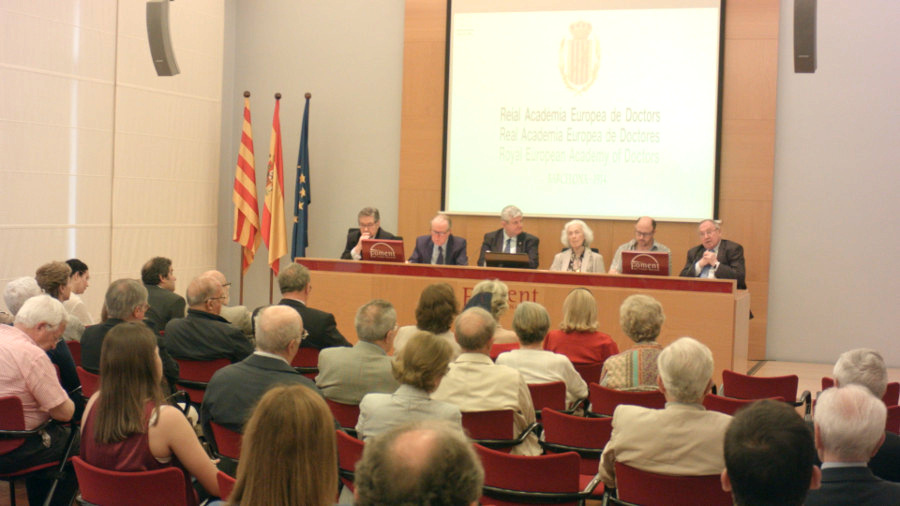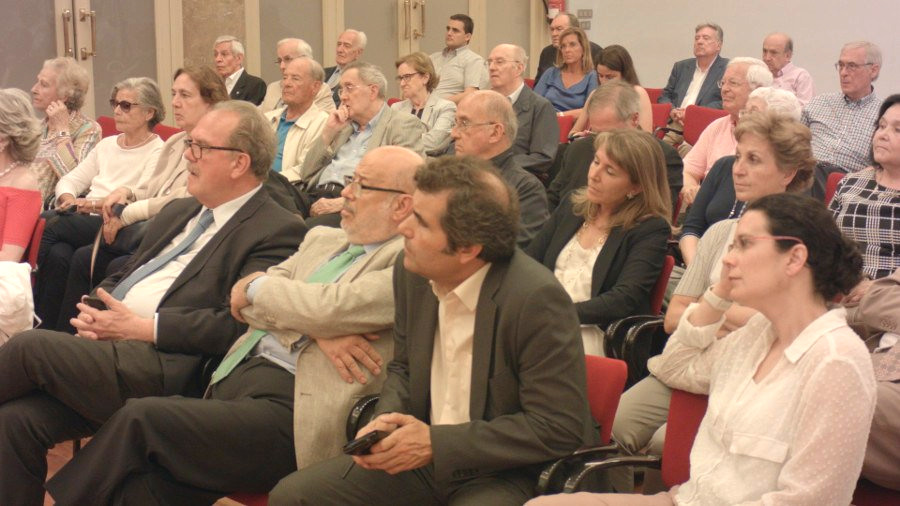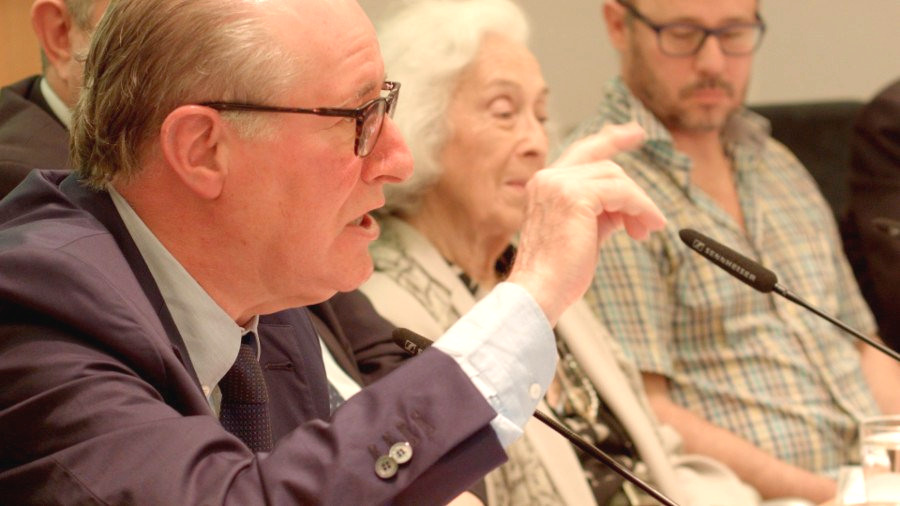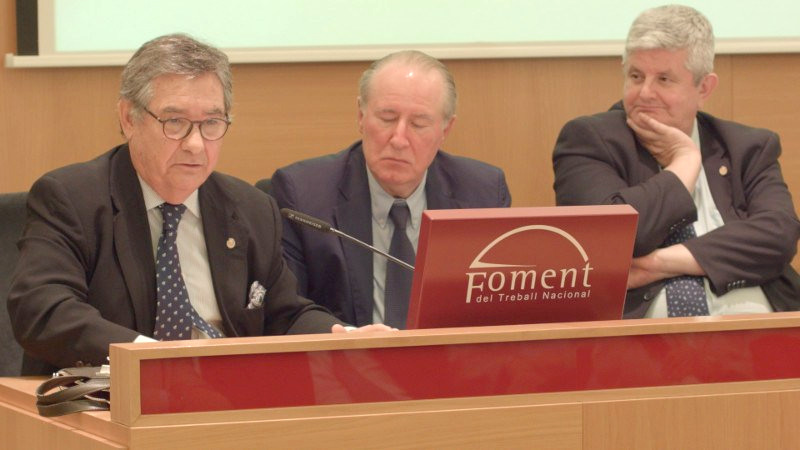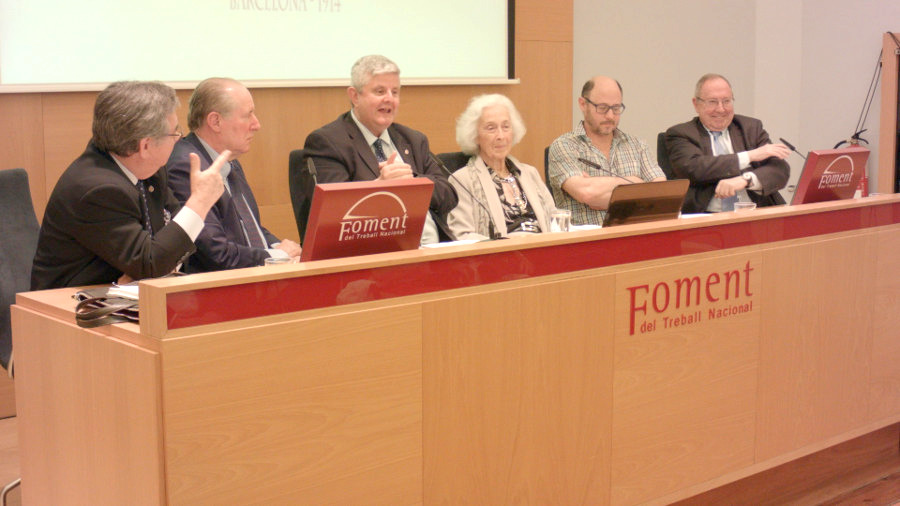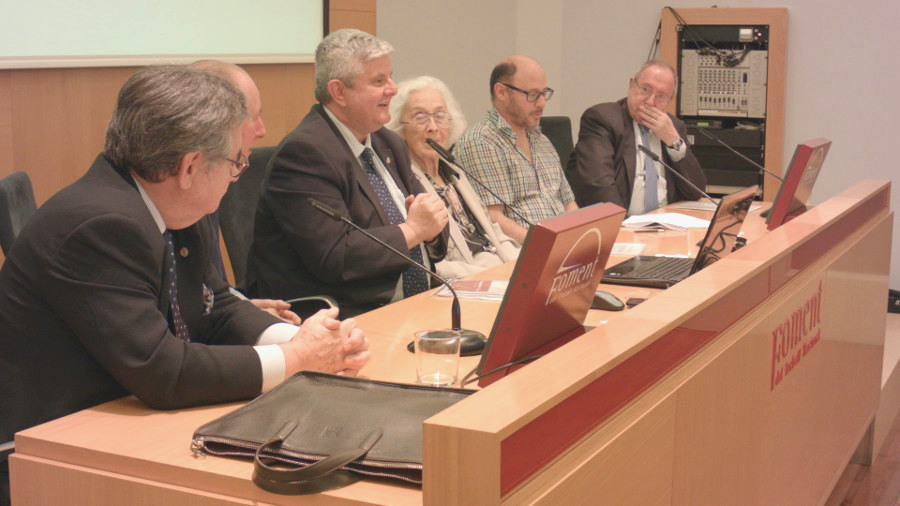The Royal Academy closes its cycle of debates of this academic year by addressing one of the recurrent and frequently deferred problems of Spanish society
The Royal European Academy of Doctors-Barcelona 1914 (RAED) closed, on 27 June, its cycle of debates of this academic year by addressing one of the recurrent and frequently deferred problems of Spanish politics and society, the reform of the pension system, with a session entitled “Sostenibilidad, retos y desafíos del sistema de pensiones” (“Sustainability and the challenges of the pension system”). The event, moderated by full academician and president of the Institute of Interdisciplinary Research of the RAED, José Ramón Calvo, was attended by José Luis Bonet, president of the Chamber of Commerce of Spain and academician elect; Myrta Casanovas, businesswoman and philanthropist; José María Gay de Liébana, professor of Economics and Business at the University of Barcelona, renowned economic analyst and full academician; Pau Miret, researcher at the Centre for Demographic Studies of the Autonomous University of Barcelona, and José Luis Salido, professor of Law at the University of Barcelona, full academician and general secretary of the Royal Academy.
Dr Gay de Liébana surprised the audience by stating that the current pension system collects €6 billion more than what it spends. The problem, he said, is that “money goes to places that it shouldn’t, and isn’t spent on pensions or insuring the system”. No less surprising was the intervention of Dr Miret, who said that the bankruptcy in the public pension system cannot be attributed to demographics: “Spain currently enjoys good demographic health, since it concentrates a large number of contributors in adulthood and the more productive part of the working life, a fact that could be used to fill the pension fund”.
Dr Salido did not hesitate to point out the “bankruptcy” of the current pension system in Spain. “Pensions are what they are because the state guarantees them… but that could change in the future, when it will face eight or ten million pensioners”, he stated. Dr Bonet was also very critical of the current situation of the pension system in Spain and, as an example, stressed “the absurdity of a system that compulsorily retires people with a large productive capacity and wastes their experience and ability to create wealth for society”.
For her part, Dr Casanova was concerned with proposing innovative formulas that help make the current pension system sustainable, such as reducing public spending on entities that do not contribute wealth or value to society, or which even generate a kind of lottery intended only for pensions with legal endorsement of their social purpose.

